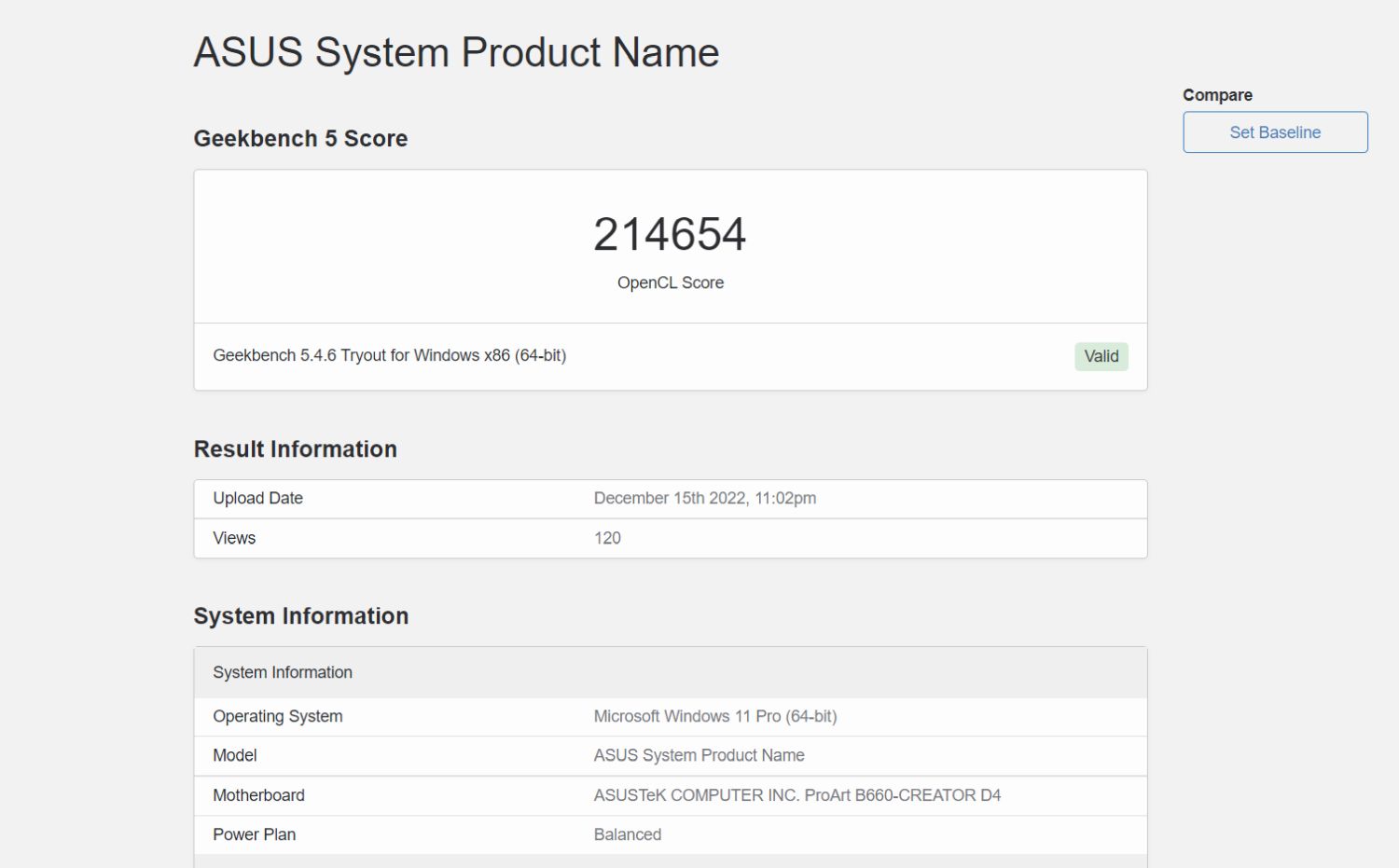It appears more details of NVIDIA’s RTX 4070 Ti have appeared on the Geekbench database. The alleged details are believed to have originated from reviewers who have already received the card and have begun testing the card and uploading their data online.
According the Geekbench page, the RTX 4070 Ti is a custom-cooled card made by ASUS, and the card was tested with a 12th Gen Intel Alder Lake system. Specifically, it was tested with a Core i7-12700, what is listed as a B660 ProART Creator motherboard, and 64GB DDR4 dual-channel RAM clocked at 3600MT/s.
[GB5 GPU] Unknown GPU
CPU: Intel Core i7-12700 (12C 20T)
Min/Max/Avg: 4472/4812/4630 MHz
Codename: Alder Lake
CPUID: 90672 (GenuineIntel)
GPU: GeForce RTX 4070 Ti
API: Open CL
Score: 214654, +50.9% vs RTX 3070
VRAM: 11.99 GBhttps://t.co/RorAyawLul— Benchleaks (@BenchLeaks) December 15, 2022
Specs-wise, the page lists the RTX 4070 Ti as having 12GB GDDR6X, a boost frequency of 2.73GHz, which is slightly higher than the 2.63GHz boost clock the card is expected to have. Additionally, it reports having 60 multistream processors, which translates to 7680 CUDA cores. In other words, those specifications are identical to what the card is expected to be, as well as to the RTX 4080 12GB before NVIDIA “unlaunched” the card and rebranded it completely.
For the uninitiated, NVIDIA had initially planned to launch its RTX 4080 GPU in two flavours: one with 16GB GDDR6X memory, and another with 12GB. However, due to a high number of complaints from both the gaming community and consumers, The latter GPU was taken off the shelf, with the card now being rebranded as the RTX 4070 Ti that we are expected to see next month, during CES 2023.

In terms of its performance, the OpenCL score of the alleged RTX 4070 Ti averages around 214654 points, which is approximately 46% faster than its Ampere-based predecessor, the RTX 3070 Ti. For that matter, the card is also slightly faster than AMD’s recently launched RDNA3-powered Radeon RX 7900 XTX, but as Videocardz points out, the OpenCL test does tend to favour NVIDIA’s GPUs, with the Radeon cards performing far better with the Vulkan API.
(Source: Videocardz, Geekbench)
Follow us on Instagram, Facebook, Twitter or Telegram for more updates and breaking news.


